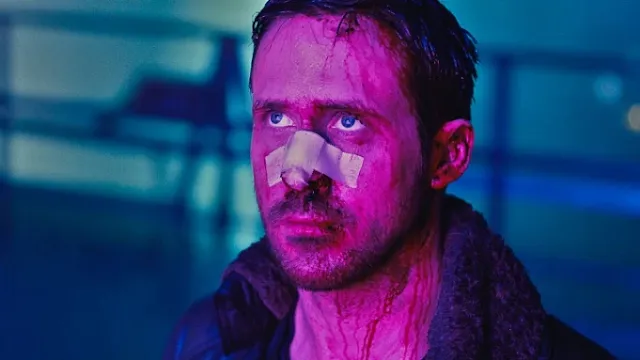The plot revolves around K's discovery of a replicant who died during childbirth, revealing that replicants can reproduce biologically. K's superior, Lt. Joshi, fears that this revelation could lead to a war between humans and replicants and orders K to find and retire the replicant child to hide the truth. K's investigation leads him to the remains of Rachael, an experimental replicant designed by Dr. Eldon Tyrell, and to the possibility that he may be Rachael's child.
The story takes K on a journey of self-discovery, as he confronts the idea of his own humanity and questions his identity as a replicant. As K investigates the child's whereabouts, he faces opposition from the Wallace Corporation, which is seeking to unlock the secret to replicant reproduction to expand interstellar colonization. Niander Wallace, the CEO of the Wallace Corporation, sends his replicant enforcer Luv to retrieve Rachael's remains and follow K to the child.

Along the way, K encounters Deckard, a former blade runner from the original film, who reveals that he is the father of Rachael's child and that he left the child in the custody of the replicant freedom movement. The movement, led by Freysa, aims to liberate replicants from their status as slaves and seeks to protect the child from the Wallace Corporation.
As the story unfolds, K's investigation leads him to discover the truth about his own identity and the identity of the child, culminating in a final confrontation with Luv and Deckard's rescue. K sacrifices himself to protect Deckard and the replicant freedom movement and dies looking up at the falling snow, symbolizing the possibility of new beginnings.

The film explores themes of identity, humanity, and the nature of consciousness. The replicants in the film are portrayed as slaves, forced to serve humans and denied the same rights and freedoms. Through K's journey, the film questions the idea of what it means to be human and whether it is determined by biology or consciousness.
Blade Runner 2049 also explores the consequences of technological advancements, particularly in the area of artificial intelligence. The film suggests that the creation of conscious beings, such as replicants, raises ethical questions about their treatment and rights.
Overall, Blade Runner 2049 is a complex and thought-provoking film that delves deep into the human condition, exploring the nature of identity, consciousness, and the consequences of technological progress.














